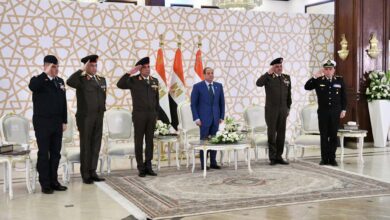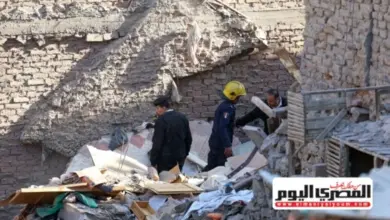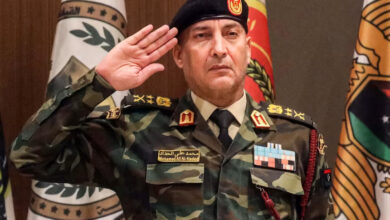The autopsies of 17 people killed in Sunday’s violence near the Maspero TV building show the army is entirely responsible for the atrocity that left at least 27 people killed, a human rights activist said on Tuesday.
The deaths occurred when thousands of Egyptians, mainly Copts, marched to Maspero in protest against an attack on a church in the Upper Egyptian governorate of Aswan. The protest resulted in bloody clashes that left 27 dead and hundreds more injured.
Videos posted online show military vehicles running over protestors, as well as smashed faces and dead bodies at both Maspero and the Coptic Hospital, where most of the dead and the injured were transferred.
“Forensic reports show that seven people were killed by live ammunition, while ten others were killed by being crushed under army vehicles," human rights lawyer Khlaed Ali revealed.
During an interview with the independent ONTV channel, Ali showed forensic reports, saying that the “army is responsible for this literal atrocity.”
He added that the preliminary forensic reports of some of the victims had given the cause of death as a drop in blood circulation.
“This is not a reason for death,” said Ali, before adding that forensic reports should indicate the mechanism of injury that led to death.
Unconvinced by these initial reports, Ali and other human rights activists managed to bring forensic doctors to the Coptic Hospital. The new and more detailed forensic reports produced by these doctors showed that many were killed either by live ammunition or being crushed under army vehicles, according to Ali.
On Monday, the public prosecutor announced that 15 suspects were being interrogated in connection with the incident. Late on Tuesday, the prosecutor was reported as having visited the scene of the atrocity.
However, Ali cast doubt over the possibly of conducting an effective investigation into the violence of Sunday. He revealed that prosecutors visited the crime scene in front of Maspero in the early hours of Monday.
“At such a time, where dim light prevails, I wonder how you could investigate the crime scene,” said Ali.
Moreover, on Tuesday, the international human rights watchdog Amnesty International criticized Egypt’s military rulers for their bloody response to peaceful protest against religious discrimination.
“Medical staff at Cairo’s Coptic Hospital told Amnesty International that… The casualties included bullet wounds and crushed body parts resulting from people being deliberately run over by army vehicles,” said Amnesty in a statement.
“Witnesses described how security forces in armored vehicles opened fire into the crowds and killed or injured protesters by running over them,” added Amnesty.
Following the deadly crackdown on the protest, the military police and men in civilian clothes raided the offices of several independent television channels. Egypt’s newspapers were hesitant of publishing any photographs of smashed faces and dead bodies.
Early on Monday morning, the army imposed a curfew on the downtown area, including Cairo's Tahrir Square, the focus for protests that brought down former President Hosni Mubarak. The curfew was set from 2 am to 7 am.
“The SCAF have been quick to place the blame on foreign ‘conspiracies’, sectarian tensions, or with protesters,” said Amnesty International.
“One can only wonder what orders were given that could have led to military vehicles running down protesters on the streets. If the military police and other security forces were not acting under orders, it raises questions about their ability to police demonstrations in the first place,”
On Monday, Egypt's Supreme Council of the Armed Forces (SCAF) ordered the government to form a fact-finding committee to investigate what happened during Sunday’s massacre.
“Any investigation into Sunday’s clashes must be independent… The investigation cannot be in the hands of the army and must be truly independent and seen as such for the witnesses and the families of the victims to trust that they can safely provide evidence and expect more than a whitewash,” said Amnesty.




